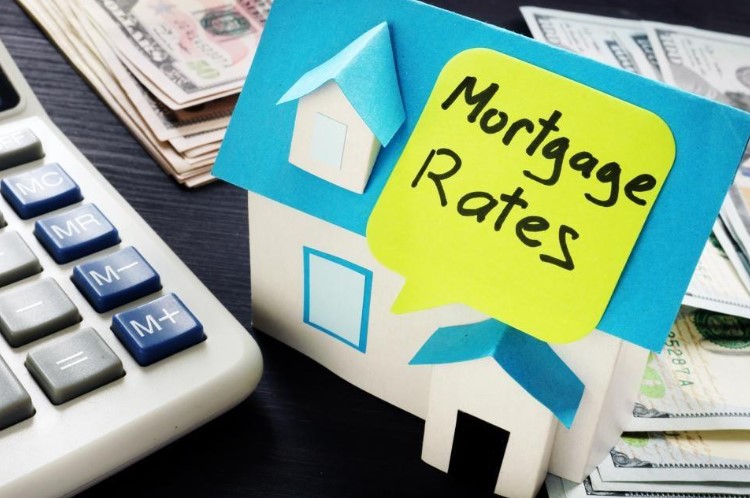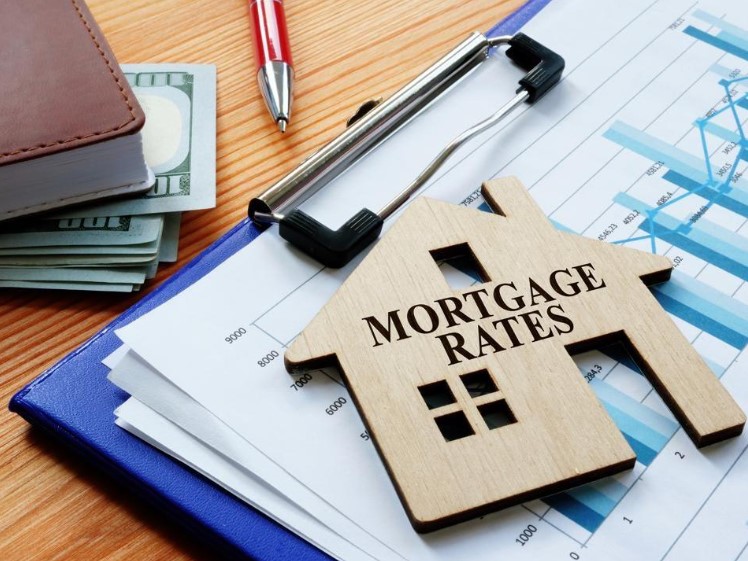Refinansiering Uten Sikkerhet: ARM Into a Fixed-Rate Mortgage
6 min read
Adjustable-rate mortgage or ARM features an initial term where you will have a low-interest rate without variations depending on Federal Reserves. Therefore, numerous people think that after the initial term, they should refinance the mortgage and choose a fixed instead.
You should know that interest increased significantly in the last year, but choosing a fixed rate is still an excellent option.
The main goal is to avoid the uncertainty of variable interest rates and choose a fixed one, which is more appealing since the adjustments can affect your situation.
Refinancing an Adjustable-Rate Mortgage

Similarly, as with other refinancing reasons, such as lowering the length or reducing the interest, you can refinance from ARM to a fixed, which will offer you a better perspective.
Of course, you must undergo both the underwriting and preapproval process with a mortgage lender, whether you choose a current or a different institution. Besides, you must pass the appraisal process, which will help determine the home’s value.
As soon as you complete the paperwork, you can pay the closing expenses, and you will obtain the loan with better terms than before. Historically, mortgage rates are low but are entering the increasing trend. Therefore, it may be wise to avoid sudden spikes by refinancing (thesbb.com – refinansiering av forbrukslån) before they reach the highest percentage.
The timing depends on your specific financial situation. Therefore, you should consider numerous factors, including:
- Financial Goals – If you wish to prioritize another financial goal, such as a savings or retirement account, you should avoid paying the high-interest debt.
- Closing Expenses – You should determine whether you can handle closing expenses and if they can offer you peace of mind overall.
- Longer-Term Options – It is vital to determine whether you will stay at home for the next five years or not.
- Credit Score – Finally, you will need a significant credit score to ensure competitiveness easily.
1. Credit Score
Choosing a refinancing will not save you money in all situations. Therefore, you must obtain a strong credit score to qualify for the most significant savings opportunity and lowest interest rate. As a result, you must make on-time payments on an adjustable interest mortgage, which will help you increase your score and apply for a fixed.
When you reach the end of the initial ARM, you have at least five or more years of on-time payments within the credit history. Therefore, the chances are high that you have a better score now than before, meaning you can qualify for better options.
We recommend you to check the report for potential errors including lousy contact info. Therefore, if something is problematic, the credit reporting agency will fix it. On the other hand, if you could boost the score, you should wait until you refinance because that way, you will ensure you have a decent score to save money eventually.
At the same time, you should start paying off your other debt and make on-time utility and other payments to ensure the best course of action.
2. Understand Your Goals
Apart from choosing a fixed rate, it would be best to consider other refinancing goals you will achieve after applying and closing. We are discussing doing a cash-out refinance to consolidate debt or paying everything off faster than the previous option.
Although cash-out refinances will increase the amount you take and owe, you can use the money for home improvement, creating a better living area and higher curb appeal. It would help if you remembered that numerous people have decided to refinance mortgages nowadays.
According to the Mortgage Bankers Association (you should click here to visit the official website), refinances reached almost forty percent of applications up until this point, while the average time for closing is two months. However, the process can last longer depending on the number of applications your lender has.
3. Do You Wish to Move?
You should know that people with no intention of selling households and moving to another place should refinance into a fixed-rate mortgage. However, if you wish to do it in the next few years, the costs will outweigh the benefits, which is essential to remember.
The main idea is to understand how much you need to break even and reach a point where refinancing will start to pay off. You can find numerous break-even calculators available online that will provide you peace of mind.
Suppose you wish to stay at home for the next three or four years and more, and you have another four years before an ARM resets. You will not reap a financial benefit by moving into a fixed rate, but you can also increase the expenses. In these situations, you should stay and avoid refinancing altogether.
Should You Refinance ARM to a Fixed Rate Mortgage?

The main idea for refinancing an ARM to a fixed rate depends on whether current mortgage rates are lower than the one you are currently paying. At the same time, if your initial term on an ARM is stopping, you will end up with a significant spike and a change in monthly installments. However, you should consider the following factors as well:
- Amount You Will Pay After ARM Resets – You should understand the annual and lifetime cap on the adjustable-rate mortgage. The annual cap is the percentage you must pay based on the market changes and fluctuations each time it resets. However, the lifetime cap is the maximum percentage allowed throughout the loan’s life, protecting you against severe interest increases.
- Do You Pay Interest-Only ARM? – For instance, if your variable-rate mortgage features an interest-only introductory period, you must pay only the interest without the principal. After the introductory period, your monthly expenses will increase significantly, meaning you must pay the entire loan. Therefore, the wisest decision is to refinance to a fixed rate.
Advantages of Fixed-Rate Mortgages
- Budgeting – If you wish to get a fixed-rate mortgage, you will understand the monthly amount you will pay. Since the amount will not change throughout the repayment period, the monthly installment will remain the same. That will help you plan and set a budget for monthly expenses. Fixed options are highly appealing to people who wish reassurance and peace of mind that the monthly repayments will not increase.
- Take Advantage of Low Rates – Suppose the interest rates were low when you wish to take a mortgage. In that case, a fixed deal will provide you with a locked option throughout the loan’s life, meaning you will avoid overspending and prevent additional expenses. Most fixed mortgages come with locked interest rates that may last throughout the lifetime or for a specific period. Although it is the attractive solution, you should weigh up whether a long-term lock is worthwhile, mainly because it is challenging to predict whether rates will fall, while your will remain high. Everything depends on the lender you have chosen.
- Protect Yourself Against Surges – A fixed mortgage can protect you if the rates increase due to financial or political instability. Therefore, when you lock them down, the lender cannot do anything about it, meaning you can rest assured along the way.
Disadvantages of Fixed-Rate Mortgages
We can differentiate downsides to fixed-rate mortgages you should consider before making up your mind, including:
- Interest May Fall – It is challenging to determine whether rates will go up or down. Therefore, you may miss out on more affordable options if rates fall during the locked term. It means you will pay more than necessary, meaning you can refinance the fixed into an adjustable one once again.
- Early Repayment Fees – Suppose you wish to refinance a fixed mortgage before the end of the term. In that case, you must handle the early repayment fee. The same thing works when you refinance ARM into a fixed one. It is a percentage of the outstanding balance, meaning it can be costly and prevent potential savings you want to make. Therefore, if you wish to move from your household in the next few years, we recommend you avoid refinancing altogether.
Enter this website: https://namb.org/ to check out the National Association of Mortgage Bankers.
- Closing and Arrangement Fees – Generally, lenders will charge more arrangement fees for fixed
- options than ARM, meaning you should calculate each step along the way to determine whether you will save money.
- Overpayments and Restrictions – Some lenders will cap the amount you can overpay on a monthly mortgage while at a fixed. Therefore, you cannot clear the balance faster than you want, which is something you should determine before choosing to refinance.







